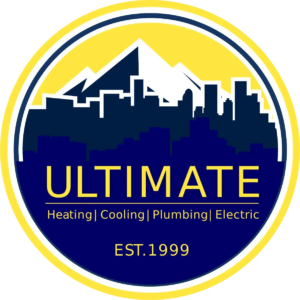Water heaters are integral to the comfort of our homes, providing the luxury of hot showers, warm water for washing dishes, and more. However, like any appliance, they require regular maintenance to run efficiently. In this article, we’ll discuss the importance of preventative water heater maintenance and how Ultimate’s plumbing services can ensure your system’s reliability and performance.
Understanding Different Types of Water Heaters
Before delving into maintenance, let’s briefly understand the various types of water heaters available:
• Tank Water Heater – Stores and heats water in an insulated tank.
• Tankless Water Heater – Heats water on-demand through super-heated coils.
• Heat Pump Water Heater – Uses heat from the air or ground.
• Solar Water Heater – Utilizes solar energy.
• Condensing Water Heater – Heats water using the home’s gas fumes.
Your maintenance requirements will vary depending on the type of heater you have.
The Significance of Regular Water Heater Maintenance
Regular maintenance of your water heater is essential for several reasons:
Enhancing Efficiency
One of the primary benefits of regular water heater maintenance is enhanced efficiency. Over time, mineral deposits and sediments can accumulate in the tank, causing your heater to work harder to warm the water. This not only leads to higher energy consumption but also strains the unit. Flushing the tank, checking the heating element, and ensuring proper insulation are some of the maintenance tasks that can help keep your water heater running efficiently. This ensures that you always have hot water when you need it without putting undue stress on the system. Prolonging Lifespan
Water heaters are a significant investment, and prolonging the lifespan of your unit is critical for maximizing this investment. A well-maintained water heater can last significantly longer compared to a neglected one. The elimination of sediment build-up, timely replacement of worn-out components, and ensuring that the system operates without overheating are vital steps. These measures not only prolong the lifespan of the unit but also ensure that it operates at peak performance throughout its service life, saving you the cost and hassle of premature replacement.
Preventing Breakdowns
There’s nothing worse than waking up to a cold shower on a freezing Denver morning due to a water heater breakdown. Regular maintenance helps in identifying and addressing potential issues before they escalate into major problems. This includes checking for leaks, ensuring that the thermostat is functioning correctly, and inspecting the condition of valves. Preventative maintenance is especially crucial in areas like Denver, where harsh winters can put extra strain on water heaters. By ensuring your unit is in top condition before the cold season hits, you can avoid the inconvenience and expense of emergency repairs.
Cost Savings
Lastly, regular maintenance of your water heater can lead to significant savings on energy bills. An efficient water heater consumes less energy, which directly translates to lower utility bills. Moreover, by prolonging the lifespan of the unit and preventing breakdowns, you save on potential repair or replacement costs. Additionally, some energy-efficient practices like insulating the water heater tank and pipes, and setting the thermostat at an optimal temperature can further contribute to savings.
In short, regular water heater maintenance is not just about ensuring a supply of hot water; it’s an essential practice that impacts efficiency, lifespan, reliability, and cost-saving. Investing in maintenance is investing in peace of mind, knowing that your water heater will serve you efficiently and reliably, especially during those cold Denver winters.
Key Water Heater Maintenance Steps
Each type of water heater has unique features and components, which require specific maintenance steps to ensure optimal performance and durability. Here’s a closer look at the maintenance steps for different types of water heaters:
Tank Water Heaters
Flush the Tank: Sediment build-up is a common issue in tank water heaters. It’s essential to regularly flush the tank every 6-12 months to remove sediment that accumulates at the bottom. This will improve the efficiency and prolong the life of the heater.
Check the Pressure Relief Valve: This valve is crucial for safety as it releases pressure if it gets too high inside the tank. Lift the lever and let it snap back. You should see a burst of water into the overflow drainpipe. If not, you may need to replace the valve.
Insulate the Tank: Insulating the tank can help reduce heat loss, saving energy. Use an insulation blanket or jacket specially designed for water heaters.
Tankless Water Heaters
Clean the Coils: The heating coils in a tankless water heater should be cleaned annually to remove scale and mineral build-up. This process usually involves circulating a vinegar solution through the unit for an hour and then flushing it with water.
Check for Obstructions: Make sure there are no obstructions around the unit and that air can flow freely. This is crucial for proper combustion and efficiency.
Check the In-line Screen Filter: Clean the in-line screen filter for debris, as this can affect water flow.
Heat Pump Water Heaters
Clean the Air Filter: Dust and debris can accumulate on the air filter, so it’s important to clean it every few months. This ensures proper airflow and efficiency.
Check Clearance: Ensure that there is proper clearance around the unit for airflow. Without adequate space, the efficiency of the heat pump can be reduced.
Check the Condensate Drain: Make sure the condensate drain is clear to allow moisture to escape.
Solar Water Heaters
Clean the Solar Panels: The solar panels need to be free from dirt and debris for maximum sun exposure. Clean them regularly, especially after storms or heavy winds.
Check Positioning: Ensure that the solar panels are positioned correctly for maximum sun exposure. This may involve adjusting the angle of the panels.
Check the Antifreeze: If your system uses antifreeze, check it annually and replace it as needed.
Condensing Water Heaters
Check and Clean the Gas Lines: Ensure that gas lines are free from debris and obstructions. Clean them as needed.
Check the Vents: The vents should be clear and free from obstructions. This is crucial for proper ventilation and efficient operation.
Clean the Condensing Coil: Regularly clean the condensing coil to ensure that it can effectively extract heat from the exhaust gases.
By following these maintenance steps, you’ll be taking a significant step towards prolonging the life of your water heater, regardless of its type. It’s also recommended to consult with a professional plumbing service like Ultimate for routine maintenance and inspections. This ensures that your water heater is in optimal condition, and any potential issues are addressed before they become major problems.
When to Consider Replacing Your Water Heater
It’s vital to recognize when maintenance isn’t enough and replacement is needed. Assess the age, performance, and costs of repairs versus replacement. Upgrading to a more efficient system can be a wise investment.
How Ultimate Can Help
Ultimate offers expert plumbing services to help you with water heater maintenance and replacement. Our experienced technicians provide professional maintenance services and can guide you in choosing the right water heater for your home in the Denver area.
Preventative water heater maintenance is crucial for the efficiency and longevity of your system. Don’t wait for a breakdown; schedule regular maintenance with Ultimate’s expert plumbing services.
Ready for a maintenance check or need professional advice? Call Ultimate at [theme_company_telephone] or contact us through our website. Discover the Ultimate difference and secure your comfort and efficiency today.


